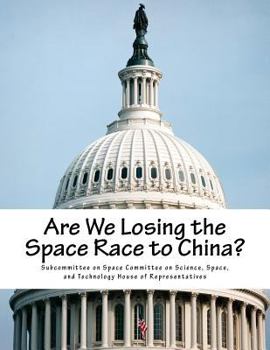Are We Losing the Space Race to China?
After the Columbia accident, President George W. Bush sought to revitalize our nation's space program by challenging NASA to return to the Moon and then chart a course to Mars. Steady advances were made towards those goals with strong Congressional support for the Constellation program. NASA made solid progress towards the development of the Ares I and Ares V vehicles. The Commercial Cargo program was initiated and the International Space Station neared completion. All of that success came to a screeching halt when President Obama was sworn in. His fiscal year 2010 budget request slashed well over a billion dollars from the exploration budget. He then tasked a blue ribbon commission to evaluate NASA's current plans. The panel found that the original plan was not executable, something that should have come as no surprise given the Obama Administration's budget cut. President Obama cancelled Constellation in its next budget request, redirected even more money to Earth Science to support its radical political agenda, and then guaranteed dependence on Russia for access to space for an extended period of time, which is still ongoing. So what does this have to do with China? This vacuum of leadership has led not only to extended dependence on Russia for access to space, but also facilitated the ascendance of China as a leading spacefaring nation. China has capitalized on [the Obama] Administration's weakness by offering partnerships with other nations on missions, like a return to the Moon, which the United States chose to walk away from. Rather than charting a bold course that inspires the international community to engage with us, the Obama Administration has alienated historic allies and potential partners alike.
Format:Paperback
Language:English
ISBN:1985072912
ISBN13:9781985072916
Release Date:February 2018
Publisher:Createspace Independent Publishing Platform
Length:128 Pages
Weight:0.69 lbs.
Dimensions:0.3" x 8.5" x 11.0"
Customer Reviews
0 rating





